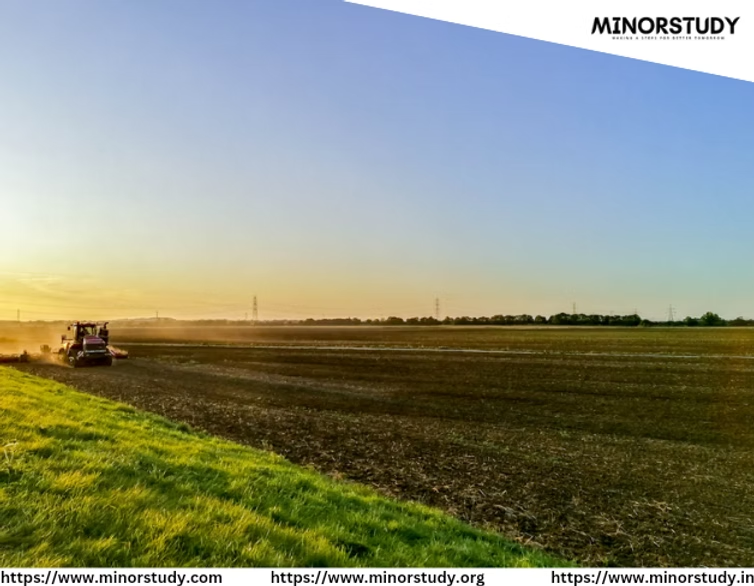Bachelor of Science in Agriculture (BScAgr) in Agricultural Economics
The BScAgr in Agricultural Economics is an undergraduate program that combines the principles of agriculture, economics, and business management. This degree equips students with the skills to analyze economic issues related to agriculture, food production, resource use, and rural development. Graduates are prepared to address challenges in the agricultural sector, such as sustainability, market dynamics, and policy-making.
Program Overview
Degree Name: Bachelor of Science in Agriculture (BScAgr) in Agricultural Economics.
Type: Major (can sometimes be complemented with a Minor in related fields like Business or Sustainability).
Duration: Typically 3–4 years.
Focus: Agricultural markets, resource allocation, policy analysis, and rural development.
Key Learning Outcomes
Economic Analysis: Ability to evaluate agricultural production systems and resource use from an economic perspective.
Policy Understanding: Understanding of agricultural policies, global trade, and rural development programs.
Business Acumen: Skills in financial planning, agribusiness management, and market analysis.
Quantitative Skills: Proficiency in data analysis, statistics, and economic modeling tools.
Sustainability Focus: Knowledge of sustainable agricultural practices and their economic implications.
Core Curriculum
Year 1 (Foundation)
Introduction to Agricultural Economics
Principles of Microeconomics and Macroeconomics
Introduction to Agricultural Sciences (Crop and Animal Production)
Fundamentals of Business Management
Statistics and Data Analysis for Agriculture
Communication Skills for Rural and Business Settings
Year 2 (Intermediate)
Farm Management and Economics
Agricultural Marketing and Supply Chain Management
Natural Resource Economics
Intermediate Microeconomics for Agricultural Applications
Policy and Development in Agriculture
Financial Management in Agriculture
Year 3 (Advanced)
International Agricultural Trade and Markets
Risk Management in Agriculture
Econometrics and Data Modeling for Agriculture
Environmental and Sustainable Resource Economics
Food Systems and Global Supply Chains
Applied Agricultural Policy Analysis
Year 4 (Specialization)
Advanced Topics in Agricultural Economics
Research Methods and Capstone Project
Rural Development Strategies
Entrepreneurship in Agriculture
Internship or Field Study (Optional in some programs)
Specializations (Optional)
Agribusiness Management
International Trade and Marketing
Environmental Economics
Rural Development and Policy
Skills Acquired
Analytical Thinking: Use of economic models to solve agricultural and rural development problems.
Quantitative Expertise: Proficiency in tools like econometrics, financial modeling, and data analysis.
Policy Analysis: Evaluating and formulating agricultural policies and trade regulations.
Business Strategy: Managing agricultural enterprises and optimizing supply chains.
Sustainability Integration: Balancing profitability with environmental stewardship.
Entry Requirements
Academic Qualifications:
High school diploma with strong performance in mathematics, economics, and sciences.
Language Proficiency:
IELTS/TOEFL for non-native English speakers (if applicable).
Career Opportunities
Graduates of a BScAgr in Agricultural Economics can pursue diverse roles such as:
Agricultural Economist: Analyzing trends in production, trade, and resource allocation.
Policy Analyst: Advising governments and organizations on agricultural policies.
Farm Business Consultant: Helping farms optimize their operations and profitability.
Agribusiness Manager: Overseeing the management and growth of agricultural enterprises.
Market Analyst: Studying agricultural markets and forecasting trends.
Rural Development Officer: Promoting sustainable development in rural areas.
Pathways to Further Studies
Master’s in Agricultural Economics
MBA in Agribusiness Management
Postgraduate Studies in Environmental Economics or Public Policy
Certifications in Risk Management or Data Analysis
Significance of the Program
Global Relevance: Tackles critical issues like food security, sustainable agriculture, and rural poverty.
Diverse Applications: Prepares graduates for careers in government, NGOs, international organizations, and private enterprises.
Focus on Sustainability: Addresses the economic implications of climate change, resource use, and conservation.
High Demand: Growing need for experts in agricultural markets and policies due to increasing global food demands.
Why Choose This Program?
The BScAgr in Agricultural Economics is ideal for students who are passionate about agriculture and interested in addressing its economic, business, and policy challenges. It offers a blend of theoretical knowledge and practical applications, making graduates valuable assets in shaping sustainable and profitable agricultural systems worldwide.








